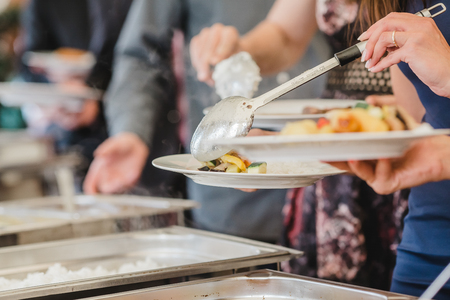Understanding the UK Food and Drink Digital Landscape
The UK’s food and drink sector is fiercely competitive, with restaurants and pubs vying for attention both offline and online. To stand out in this landscape, understanding the digital habits of UK diners is crucial. The online environment in Britain reflects a blend of tradition and modernity: people still love their local chippy or gastropub, but they increasingly turn to Google, TripAdvisor, and social media when deciding where to eat or grab a pint.
Popular Search Trends in the UK
Consumer search behaviour reveals strong demand for “near me” queries, especially for last-minute bookings or spontaneous nights out. Additionally, terms like “best roast dinner in London,” “dog-friendly pub Manchester,” or “vegan brunch Glasgow” are commonly used by locals seeking tailored experiences. Understanding these trends enables restaurants and pubs to align their SEO strategies with what potential customers are searching for.
| Search Trend | Typical User Intent | Opportunity for Businesses |
|---|---|---|
| “Pub near me” | Immediate visit, convenience | Optimise Google My Business listing, local keywords |
| “Best Sunday roast [city]” | Looking for top-rated experiences | Encourage reviews, create landing pages for special menus |
| “Vegan restaurant [region]” | Specific dietary needs | Add dedicated menu pages, use relevant schema markup |
| “Family-friendly restaurants” | Dining with children or groups | Mention facilities & offers for families on site and listings |
Local User Behaviour in the UK Market
The British public highly values authenticity and local character. Reviews on platforms like Google and TripAdvisor heavily influence decision-making, often more than official websites. Social proof—such as user-generated content on Instagram or Facebook check-ins—can sway choices, particularly among younger demographics.
Region-Specific Opportunities for Digital Visibility
The UK comprises diverse regions each with its own food culture and digital habits. For instance:
- London: Fast-paced searches, high volume of international visitors, importance of mobile-optimised sites.
- Northern England: Strong community ties; recommendations from locals hold significant weight.
- Scotland & Wales: Emphasis on local produce and heritage; storytelling about provenance resonates well.
- Countryside & Coastal Areas: Seasonal traffic peaks during holidays; opportunity to capture tourists through timely content updates.
Key Takeaway:
An effective SEO strategy begins with a deep understanding of how UK diners search for and choose restaurants and pubs. By leveraging data on popular trends, regional preferences, and user behaviours unique to the UK market, businesses can position themselves at the forefront of customers’ digital journeys—and ultimately drive more footfall through their doors.
2. Optimising Google Business Profile for Local Searches
In the competitive UK food and drink industry, a well-optimised Google Business Profile (GBP) is essential for attracting local customers to your restaurant or pub. A strong GBP not only boosts your visibility in British local search results but also ensures your venue appears accurately on Google Maps—crucial for foot traffic and reservations. Here are some best practices tailored for UK establishments:
Claim and Verify Your Listing
Begin by claiming your Google Business Profile if you haven’t already. Verification is crucial; unverified listings are less likely to appear in local searches, and you risk losing control of your business information.
Use Precise Location Information
Always use a complete and accurate address, including building names (if applicable), street name, town/city, county, and postcode. This is particularly important in the UK where many streets share similar names across different regions. Ensure your pin location on Google Maps matches your actual entrance to avoid customer confusion.
Example: Address Formatting
| Field | Correct Example |
|---|---|
| Address | The Red Lion, 25 Market Street, Cambridge, CB2 3PA |
| County | Cambridgeshire |
| Postcode | CB2 3PA |
Add Accurate Opening Hours and Special Hours
List regular opening times as well as special hours for bank holidays, festive periods (like Christmas or Easter), and major sporting events. British customers rely on accurate timings, especially when planning group outings or Sunday roasts.
Select Relevant Categories and Attributes
Select categories that match your business—such as “Gastropub”, “Family Restaurant”, or “Cask Ale Pub”. Use attributes like “Dog-friendly”, “Outdoor Seating”, or “Live Football Shown” to stand out in local searches relevant to UK culture.
Popular Attributes in the UK Food & Drink Sector
| Attribute | Description |
|---|---|
| Dog-friendly | Pubs allowing pets inside or in gardens—a big draw in many British towns. |
| Cask ale served | Highlights traditional British beer options. |
| Sunday roast available | Cater to those searching for classic Sunday dining experiences. |
| Wheelchair accessible | Shows inclusivity and accessibility. |
| Biergarten/Beer garden | A seasonal favourite during British summers. |
Add High-Quality Local Photos and Menus
Upload professional photos of your interiors, food, drinks, beer taps, and outdoor spaces. Include images with recognisable British touches—red phone boxes nearby, Union Jack bunting, or village greens. Regularly update menus with seasonal specials or themed nights (like “Pie & Pint Tuesdays”) to engage locals searching for something unique.
Encourage Reviews and Respond Promptly
British diners often read reviews before visiting. Politely encourage happy patrons to leave feedback and always respond—especially to negative comments—to demonstrate attentive service. Responses should use polite British English (e.g., “Thanks ever so much for your kind words!” or “We’re truly sorry to hear about your experience.”).
Case Study: The Fox & Hounds, Surrey
The Fox & Hounds saw a 40% increase in bookings after updating their GBP with precise opening hours for bank holidays and promoting their dog-friendly beer garden through new photos and attributes. Their regular responses to reviews—using classic British courtesy—helped boost their average rating from 4.1 to 4.6 stars over six months.
![]()
3. Leveraging Local Citations and UK Review Platforms
For restaurants and pubs aiming to outshine competitors in the UK’s food and drink industry, local citations and review platforms play a pivotal role in SEO success. Local citations—mentions of your business’s name, address, and phone number (NAP)—help search engines verify your establishment’s legitimacy and relevance to local searches. Consistency across all directories is essential; mismatched details can confuse both Google and potential customers, undermining your search visibility.
Why Local Citations Matter for UK Businesses
Local citations are a key ranking factor for Google’s local pack results. The more authoritative and relevant the directory, the stronger the SEO benefit. In the UK, it’s crucial to focus on British-centric directories in addition to global platforms. Here’s a quick comparison:
| Directory Name | Type | UK Relevance | SEO Impact |
|---|---|---|---|
| Yell.com | General Business | High | Strong for UK Local SEO |
| Scoot.co.uk | Business Listing | High | Boosts Local Signals |
| Thomson Local | General Business | Medium-High | Enhances Trustworthiness |
| Bing Places UK | Search Engine Directory | High | Complements Google My Business |
| Google My Business | Main Search Engine Directory | Essential (Global & UK) | Critical for Map Results |
Navigating UK-Based Review Platforms: TripAdvisor, OpenTable, and Trustpilot
Beyond citations, online reviews wield significant influence over both customer perception and local rankings. In the UK market, platforms like TripAdvisor UK, OpenTable UK, and Trustpilot UK are especially important. These sites are trusted by British diners and regularly appear in search results for food-related queries.
Best Practices for Using UK Review Sites Effectively:
- Claim Your Listings: Ensure your business profile is accurate, complete, and updated with enticing photos, menus, and opening hours.
- Encourage Authentic Reviews: Politely ask guests to leave feedback after their visit—consider using table cards or follow-up emails via booking systems.
- Respond Promptly: Address both positive and negative reviews in a professional tone. This demonstrates engagement and builds trust with potential diners.
- Monitor Regularly: Set up alerts so you never miss new feedback or opportunities to engage with your audience.
- Add Structured Data: Where possible, use schema markup for reviews to help search engines showcase your ratings directly in SERPs (search engine results pages).
A Real-World Example from the UK Market:
The “Queen’s Arms” pub in London saw a 25% increase in bookings after actively managing their TripAdvisor profile, responding to every review within 24 hours, and correcting NAP inconsistencies on major UK directories. Their star rating improved from 3.8 to 4.3 within six months—a testament to the power of proactive citation management and review engagement.
4. Crafting British-Targeted Content and Menu Highlights
For restaurants and pubs aiming to stand out in the UK’s competitive food and drink sector, it’s crucial to tailor your website content to local tastes and search habits. Engaging, culturally resonant content not only appeals to both tourists and locals but also strengthens your SEO by targeting relevant keywords. Consider publishing regular blog posts that spotlight classic British experiences—such as guides to the perfect Sunday roast, explorations of regional pies, or introductions to iconic British ales. These topics naturally attract organic traffic looking for authentic UK dining experiences.
Optimising Menu Pages with Popular UK Search Terms
Your menu pages are high-value real estate for SEO. Make sure every item is described using terms that potential customers actually search for. For instance, instead of just listing “Fish & Chips,” expand the description: “Traditional British Fish & Chips with Mushy Peas – a London favourite.” This approach helps capture long-tail searches from both locals and visitors seeking genuine British fare.
Examples of Culturally Relevant Content Ideas
| Content Type | Example Topic | Target Audience |
|---|---|---|
| Blog Post | The History of the Full English Breakfast | Tourists & Locals |
| Menu Feature | Best Local Ales on Tap This Month | Ale Enthusiasts |
| Event Page | Sunday Roast Specials Every Weekend | Families & Groups |
Keyword Integration for Maximum Visibility
Research trending UK-specific search phrases such as “best pub lunch in Manchester” or “family-friendly restaurants near me.” Incorporate these naturally into your menu descriptions, headings, and blog articles. This not only improves your visibility in local searches but also positions your establishment as an authority on British food culture.
5. Effective Backlink Strategies with Local Outreach
Building high-quality backlinks is essential for elevating your restaurant or pub’s SEO, particularly in the competitive UK food and drink scene. Local outreach is one of the most effective ways to secure relevant links that resonate with your British audience and boost your rankings on Google.co.uk. Here, we explore proven strategies and showcase how real UK venues have achieved SEO success through collaboration.
Partnering with Local Influencers
Engaging local influencers who are active in the UK food and lifestyle space can result in authentic backlinks from highly trusted sources. For example, The Eagle, a renowned gastropub in London, invited London-based Instagram influencers for an exclusive tasting night. The resulting blog features and social posts included direct links back to The Eagle’s website, significantly increasing its domain authority and organic traffic.
Working with Food Bloggers
Food bloggers command loyal audiences and often maintain websites with strong backlink profiles. A notable case is The Chippy on the Corner in Manchester, which hosted a “Behind the Fryer” event for prominent Northern food bloggers. Each blogger shared a detailed write-up and review, including location-specific keywords like “best chippy in Manchester” that drove targeted traffic via quality backlinks.
Table: Example Outreach Opportunities
| Outreach Target | Activity Type | Potential Backlink Source | Notable Outcome |
|---|---|---|---|
| Local Food Bloggers | Tasting Event Invite | Blogger Review Post | +15% referral traffic |
| Community Event Organisers | Sponsorship/Participation | Event Website Feature | Citations & .org backlinks |
| UK Influencers (Instagram/Youtube) | Collaboration Campaign | Social profile/YouTube descriptions | Brand awareness spike |
| Local Press & Magazines | Press Release Distribution | Online article mentions | .co.uk news backlinks secured |
Tapping into Community Events
Sponsoring or participating in local events—such as beer festivals, charity runs, or street food markets—can earn your business valuable mentions on official event websites, community blogs, or council pages. For instance, The Red Lion Pub in Oxfordshire sponsored a village fete and was featured on the parish council’s site and local news portals, generating authoritative UK-based backlinks that improved their local pack visibility.
Key Takeaways for UK Restaurant & Pub Owners:
- Pursue collaborations with influencers who reflect UK tastes and trends.
- Create unique experiences for food bloggers to ensure shareable content.
- Sponsor local events to secure .co.uk backlinks from reputable organisations.
- Always request a follow link where possible to maximise SEO benefit.
- Nurture ongoing relationships for long-term digital PR impact.
A strategic local outreach campaign not only enhances your SEO but also builds community goodwill—an invaluable asset for any restaurant or pub aiming to stand out across the UK’s thriving food and drink sector.
6. Technical SEO and Mobile Optimisation for UK Users
When it comes to the food and drink industry, technical SEO is not just a back-end consideration—it’s a crucial part of your online reputation. British diners expect restaurant and pub websites to load quickly, look sharp on any device, and offer seamless browsing, especially when searching from their mobiles or tablets before booking a table or checking out your menu. Here’s how you can make sure your site meets (and exceeds) UK user expectations:
Why Technical SEO Matters for UK Restaurants and Pubs
Search engines like Google now prioritise websites that deliver fast, responsive experiences. If your website is sluggish or difficult to navigate on a smartphone, potential customers may bounce straight off and head to a competitor with a better online presence.
Key Technical SEO Elements
| Element | Best Practice | UK-Specific Tip |
|---|---|---|
| Site Speed | Optimise images, use caching, minimise code. | Test speeds using servers based in the UK for accurate results. |
| Mobile Responsiveness | Use a responsive design framework; check rendering on various devices. | Cater for both iOS and Android users; ensure click-to-call for local numbers. |
| Structured Data Markup | Add schema for menus, opening hours, reviews. | Highlight British food categories and local events (e.g., Sunday roast, quiz night). |
| HTTPS Security | Ensure SSL certificates are up to date. | Display trust badges—British users value security for bookings/payments. |
The Importance of Mobile Optimisation in the UK Context
A significant portion of UK diners will discover you via mobile search while out and about. Your site should support:
- One-click directions: Integrate with Google Maps and Apple Maps so locals can easily find your location from their phones.
- Tappable phone numbers: Make reservations easy by allowing users to call directly from your website.
- Mobile-friendly menus: Present clear, legible menus without forcing users to pinch-and-zoom—a common frustration among British customers looking for allergen info or daily specials.
- Fast loading times during peak hours: Many Brits browse restaurants before dinner or Sunday lunch—your site must perform flawlessly even at busy times.
Case Study: The London Gastropub Advantage
A popular gastropub chain in London revamped their site with accelerated mobile pages (AMP), optimised image compression, and streamlined navigation. As a result, their bounce rate dropped by 30%, and mobile reservations increased by 45% within three months. Their focus on technical SEO ensured they outranked competitors in “pubs near me” searches—a critical edge in the crowded UK market.
7. Tracking Success: Analytics and Ongoing Improvements
To maintain a competitive edge in the UK food and drink industry, restaurants and pubs must continuously monitor their SEO efforts. Tracking performance not only reveals what’s working but also highlights areas for improvement, ensuring your business stays ahead in local search results.
Essential Tools for SEO Tracking
Several analytics tools provide valuable insights tailored to the UK market:
| Tool | Main Features | UK-Specific Benefits |
|---|---|---|
| Google Analytics | Tracks website traffic, user behaviour, conversion rates | Segment data by location to analyse regional engagement |
| Google Search Console | Monitors site visibility, keyword rankings, click-through rates | Identifies top-performing keywords with UK audience intent |
| Bing Webmaster Tools | SEO diagnostics, backlink analysis, crawl reports | Covers Bing users popular in certain UK demographics |
| SEMrush / Ahrefs / Moz | Keyword tracking, competitor analysis, site audits | Benchmarks against UK-based rivals and local trends |
Key Metrics to Measure Success
- Organic Traffic: Monitor the number of visitors arriving via unpaid search results. Increasing figures often signal improved rankings and brand awareness locally.
- Keyword Rankings: Track how your target keywords (such as “pubs in Manchester” or “best fish and chips London”) perform over time.
- Local Pack Visibility: Keep an eye on your Google My Business listing impressions and interactions to see how often you appear in map results.
- User Engagement: Bounce rate, average session duration, and pages per visit offer insight into whether your content satisfies visitor intent.
- Conversion Rates: Whether it’s table bookings or menu downloads, measure the percentage of visitors completing desired actions.
Continuous Enhancement Strategies
- A/B Testing: Experiment with changes to landing pages (e.g., headline variations or call-to-action buttons) to see what resonates best with your UK audience.
- Content Refreshes: Regularly update menus, blog posts about local events, and seasonal offers to maintain relevancy.
- Citation Audits: Ensure that all business listings on platforms like TripAdvisor, Yelp UK, and Google are accurate and consistent.
- User Feedback Analysis: Use review data from Google or Facebook to identify recurring themes—both positive and negative—to inform service improvements.
- Competitor Benchmarking: Routinely compare your performance against leading local establishments using SEO tools’ competitor features.
The Value of Ongoing Improvement in the UK Market
The British food and drink scene is dynamic—what works today may not suffice tomorrow. By implementing a robust analytics routine and responding swiftly to insights, restaurants and pubs can outpace competitors, meet evolving customer expectations, and secure lasting visibility online.


